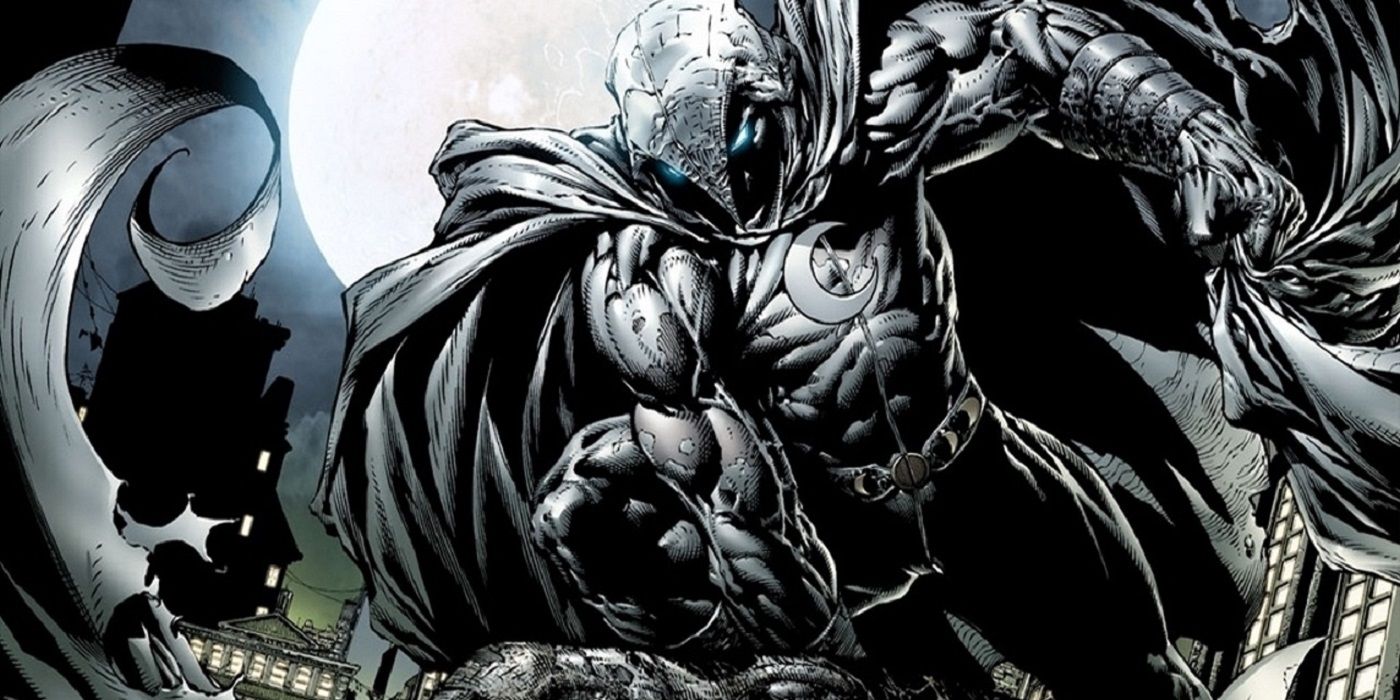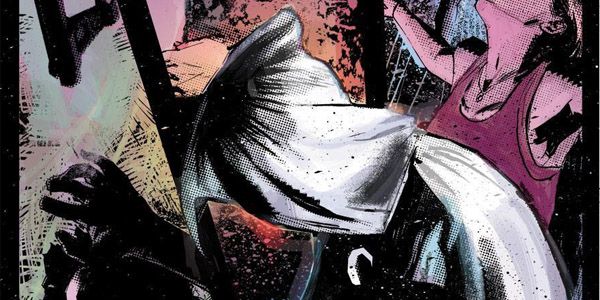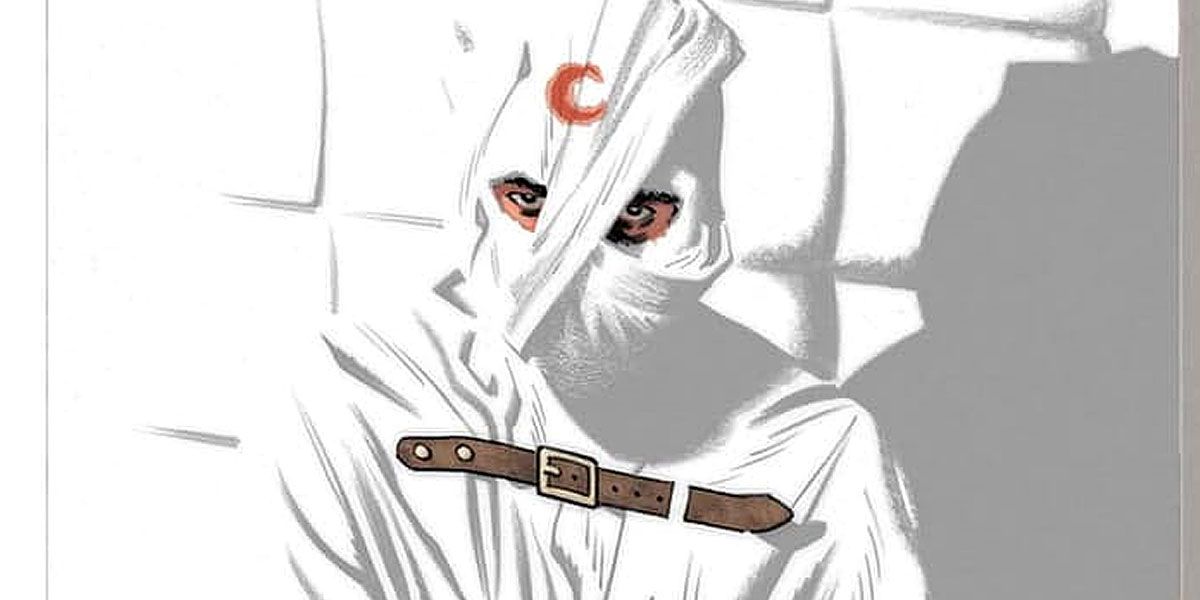Moon Knight isn't exactly the most original of comic book characters. Like a few other Marvel B-listers, he bears some pretty striking similarities to original, more successful DC Comics characters, in this instance the end-all-be-all vigilante night-stalker himself, Batman. As is the case with the Caped Crusader, Moon Knight is coincidentally also a wealthy playboy with a dark past who dedicates his life to crime-fighting, despite the heavy toll it takes on his personal relationships and psyche. Both rely heavily on the concept of fear and its effect on their targets, both ride in transport featuring pretty questionable names (neither the "Mooncopter" nor the "Batmobile" exactly roll off the tongue), and both are distrustful of playing nice with other superheroes.
Even with a few decent runs by writers and artists, it's pretty easy to see why Moon Knight never really took off like some of his Marvel cohorts. Why mess with a good thing when Batman's had that angle pegged for decades now? It's strange, though, because despite being rarely, if ever, capitalized on, the secret to Moon Knight's potential success has been there from the very start. For some reason, little has ever been made of the character's origins -- Marc Spector, estranged son of a Holocaust-fleeing rabbi, is chosen to serve as the avatar for Khonshu, the Egyptian god of vengeance. A Jewish identity crisis for the ages.
RELATED: Lemire Takes an Unbalanced Approach to “Moon Knight,” Marvel’s Craziest Hero
Judaism influencing comic book superheroes is nothing new. Given Superman’s beginnings, springing from the imagination of two Jewish creators, it's arguably the backbone on which the entire genre is built. And while religion still doesn’t factor very strongly for mainstream crimefighters’ identities, the motifs we see used have been increasingly swapped out for more vaguely Christian imagery. Joe Shuster and Jerry Siegel’s Kryptonian Kal-El (roughly translated from Hebrew as “Voice of God”) underwent some serious Christ-like transformations in Zack Snyder’s DCEU film adaptations, and Marvel’s one overtly religious character currently being pushed in its film and television ventures, Daredevil, is a devout Catholic. Otherwise, the publisher generally shies away from discussions of faith altogether, despite the Civil Rights and post-Holocaust origins of their X-Men. None of this is inherently a bad thing; it’s a simple catering to demographics, sales trends, and artistic visions. But when a character like Moon Knight has struggled for years to find a place among similar, some would say better, characters, it’s odd that writers haven’t attempted to capitalize on the one thing that sets him apart, a trait that goes back to the very foundations of American comic books.
Upon making a brief, villainous debut in 1975, Doug Moench and Don Perlin's Marc Spector proved a quick hit with readers, prompting a reintroduction and transition into the cult favorite anti-hero that's better known today. Spector’s origin story is steeped in theological conflicts of interest. He rejects his father’s religion for a secular, materialist life, joining the CIA special-ops before becoming a lucrative mercenary-for-hire. Double-crossed and left for dead in Sudan, Spector winds up at the altar of Khonshu, the Egyptian moon god of vengeance and protector of those who travel at night.
Flash forward, and we’ve now got Moon Knight, Khonshu’s will made manifest on Earth in the form of a lapsed rabbi’s son. It’s a pretty unique backstory – certainly more intricate than Bruce Wayne’s orphan past, or even the Punisher’s “lost it all and out for revenge” origins, another character Moon Knight can’t seem to outstep. On top of that, Spector continually shatters the stereotypes of a meek and passive Jewish male, an image that persists to this day thanks to endemic anti-Semitism. Still, for decades Moon Knight stories have generally emphasized a gritty, darker take on the Batman vigilante trope, doubling down on the things it can’t hope to live up to while ignoring the one trait that sets him dramatically apart from the pack.
If there’s one thing the various incarnations of Moon Knight have done well, it’s tackling themes of mental illness and instability. The main thread running through much of the modern Marc Spector mythos is the possibility of it all being a sham – that there is no Khonshu, and Spector is simply suffering from a serious and elaborate mental breakdown filled with multiple personalities created to cope with past trauma. This is, in itself, a great discussion to have within comic books, and one that shouldn’t be avoided. However, the Moon Knight “insanity” subplots have been rehashed again and again, despite a potential wealth of untapped material built into the character’s origins.
Moon Knight’s current rebooted run under Jeff Lemire, Greg Smallwood, and others has proven to be a consistently solid title under the All New, All Different Marvel moniker. That being said, sales have dropped off at a steady clip since its debut, perhaps because of the same problems Marc Spector continuously runs into – a rehashing of old themes, repackaged to varying degrees of success while failing to fully differentiate from previous incarnations of the character. In a recent note on an issue of Moon Knight’s letters page, Lemire hinted that he plans on exploring some of Marc’s Jewish past in the coming issues. It’s good to see, even if it’s taken a little too long to for writers to come around to this. In an era when Clark Kent strikes crucifixion poses in his films while Matt Murdoch contemplates his actions in a confession booth, continuing to ignore Moon Knight’s roots makes little sense.



